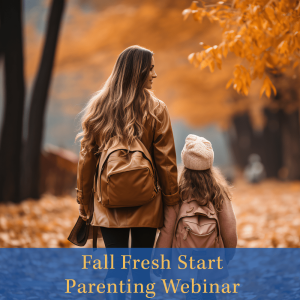4 Steps For Increasing Your Patience
Some people seem to be naturally patient, while others seem to struggle with increasing patience because of their strong/hard natures or how they were nurtured. However, when patience is more understood, we all might find that we’re taking more steps toward patience than we think we are. And, if we keep taking those steps, then we may develop the habit of patience that we hope for.
A few days before my wedding, my husband caught me completely off guard by confessing to me, “You should know that I’m not a very patient person. I’ve been praying for patience for years, but I’m not good at it yet. I’ll keep trying though.”
This simple confession worried me a bit, but mostly impressed me. Of course I wondered what his impatience looked like because I didn’t feel like I’d seen that side of him. But, more than that, I was so impressed that he knew what patience was and that he was lacking it and praying for it. For months I watched my new husband to see if he was an angry person. I didn’t see much anger, so I assumed that he had misdiagnosed himself. Then I began to study patience and saw that it was a bigger principle than I realized. Not being angry is only one part of being a patient person.
Throughout my travels teaching parenting, I’ve heard a voluminous amount of confessions of lack of patience. And, when witnessed, one parent’s impatient behavior often looks unique from another parent’s impatient behavior.
Understanding Patience
Proverbs 15:1 says that “A soft answer turneth away wrath; but grievous worlds stir up anger.” A “soft answer” is a mild, gentle, kind, not severe or unfeeling answer. And, a soft person is the kind of person who gives a “soft answer.” Oftentimes women are called ‘soft.’ But, I’m not referring to women. Anyone can become soft. My husband was working on becoming softer when we first got married and still works on it today.
Webster’s 1828 dictionary says one definition of the word soft is, “Easily worked; malleable; as soft iron.” A soft person is a teachable, patient person.
Key characteristics of being patient include being teachable, humble, not proud, forgiving, persistent, a person of action, still, willing to wait, hopeful, slow to wrath, faithful in persecution, gentle to all people, willing to work for a reward, swift to hear, suffers without complaint, diligent in faith, virtuous, knowledgeable, temperate, charitable, kind, submissive to God, long suffering, compassionate, honors relationships, and knows who they serve, etc.
Angie’s Patience
My friend, Angie, is one of those people who’s always seen doing good for others. You’d never know that she’s dealt with severe health problems for most of her life. Not only is she constantly in and out of the hospital for recurring cancer treatments, she has a large family that she takes care of all on her own because she’s a single mother. She never planned on raising her family alone, but after her husband left her, she was suddenly forced to live a new way with new pressures for her and her children.
Angie has depression and sometimes has hard days, but I’ve hardly ever been able to tell. She has created a habit of being patient in her trials. It isn’t that Angie is any stronger than any other mother. In fact, she would say, “I just keep going, like everyone else.” What Angie doesn’t seem to really understand is that many people don’t keep going. Many people become impatient with their circumstances, and they give up.
What does Angie do? Angie, without even knowing it, has a great recipe for increasing patience that all parents, in fact, anyone, can use to increase patience in their lives and relationships.
4 Steps to Becoming More Patient
- Admit that you don’t know it all and ask for direction daily. Angie is humble. She doesn’t feel like she can get through her days unless she has gone to God for help. She prays and studies each day for a short time to center herself and to keep herself pointing in a healthy direction. She also asks other people for help when needed, too.
- Be grateful for trials because so much can be learned when life isn’t perfect. Instead of complaining about her problems, Angie shows gratitude. She says that she wouldn’t be the person she is today without her problems. She is grateful for them because of the refining she has experienced because of life not being perfect.
- Really care about everyone, even if you’re tired. Have you ever met one of those people who always wants to listen to you, even if they have a lot to do themselves? That’s Angie. She is great at taking time to listen and really understand. And, because she listens to all people, she values and cares about all people. Caring about all people is an act of patience. It takes time to care about others, and often requires slowing down. Another part of caring about others is forgiving them when they disappoint you or hurt you. Angie never says unkind things about people, even her husband who cheated on her.
- Keep looking ahead and moving forward. Maybe a lifetime of cancer treatments has taught Angie how to keep looking forward. She says, “The stuff going on right now isn’t where I’m going. It’s just where I’ve been.” People who keep a clear vision of where they are heading don’t allow themselves to lose patience with the less-than-perfect situations they might find themselves in. And, when we over-focus on the troubles we are having in the minute, we can end up getting stuck in our problems. Instead of getting stuck, Angie keeps pushing herself forward by saying, “What needs my attention next?” or, “What do I get to do next?”
Patience is so much more than not getting angry! Patience is taking control of your life. When a person has self-government, then they are a patient person. They focus forward, welcome correction and trials, and connect to the people around them. They work hard and listen to others.
The famous prime minister of England, William Pitt, was asked one time what made him such a good prime minister. The interviewer wanted to know if it was his toil. Pitt said that he was such a good prime minister because he had made a “habit of patience.”
At first glance a person might think that William Pitt was just holding back emotions. However, after really understanding patience, Pitt’s statement shows that he focused on changing his whole life from the inside out, and that made him a good leader.
My husband wanted to be a good leader for our family. He wanted patience. And now, after almost 30 years of marriage, he waits, listens, appreciates, forgives, and focuses forward much more than he did before. And all of this makes him not use “grievous words” and become angry. Now he teaches other people how to have “soft answers.”
Calmness is important for learning patience. The Free Calm Parenting Toolkit can help.
Index
- Abuse, Accepting No Answers and Criticism, Addictions, Adult Children, Adults, Age, Anxiety, Assertive Communication, Attitude, Authority, Balance, Begging, Behaviors, Calm, Changing Hearts, Character Building, Common Vision Creation, Connecting (Looking in the eyes), Control, Culture, Depression, Describe, Entitlement, Etiquette, Expectations, Family Culture, Family Standard, Family Unity, Grandparents, Manipulation, Mission, Mutual Respect, Power of Calm, Power Struggling, Priorities, Relationships, Respect, Roles, Seek to Understand, Sibling Interactions, Skills, Social, Spouse, Structure, Teens (Youth), Toddlers & Younger Children, Tone, Tweens, Unity, Urgency Addictions, Vision





